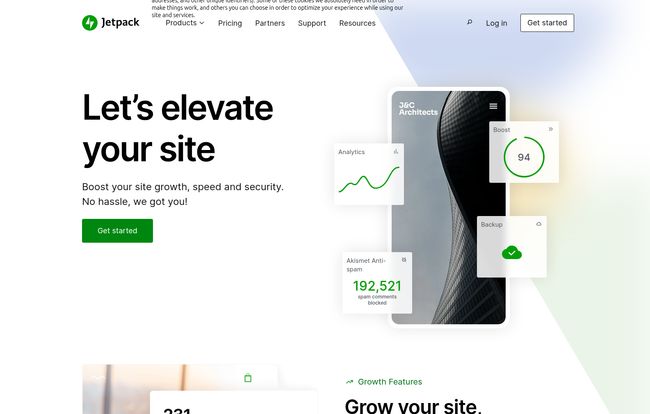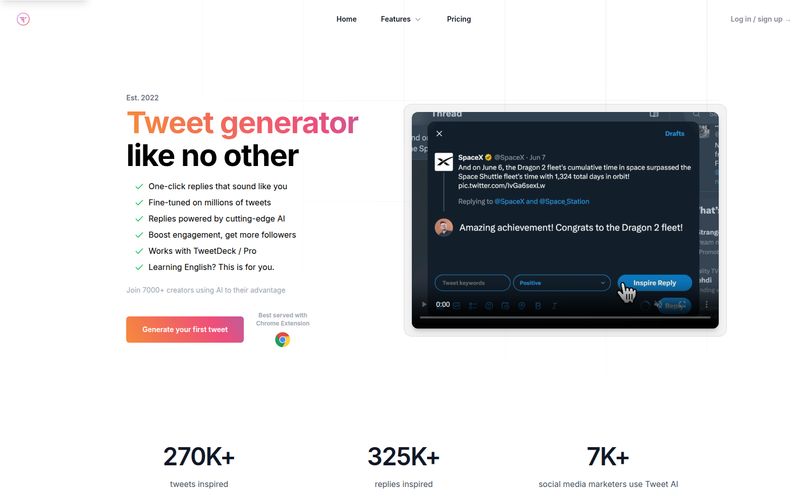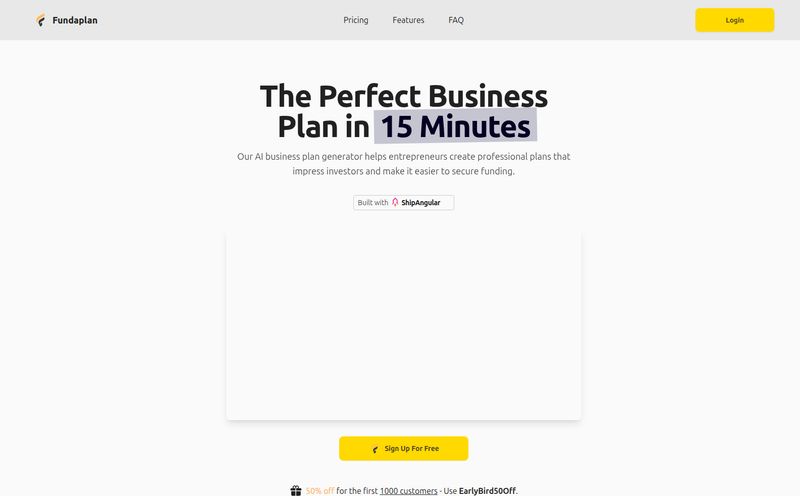You and me. About plugins. Specifically, the chaotic, wild west of the WordPress plugin directory. If you've run a WordPress site for more than, oh, a week, you know the feeling. You need security, so you get a security plugin. Then you need backups. Another plugin. You want better performance? CDN? Social sharing? SEO help? Image optimization? Yep. Plugin, plugin, plugin, plugin.
Before you know it, your dashboard looks like a pilot's cockpit with a hundred blinking lights and your site starts moving at the speed of a sleepy glacier. I call it 'plugin-itis'. It’s a real affliction for site owners. We load up on all these 'solutions' only to create a new problem: a clunky, slow, and potentially insecure website. It's the ultimate irony.
This is usually the point where someone in a forum mentions Jetpack. And for years, I was skeptical. An all-in-one plugin? From Automattic, the same folks behind WordPress.com? Sounds too good to be true, right? Or worse, sounds like bloatware. But after managing dozens of client sites and my own projects, I’ve come around. So, grab a coffee, and let's talk about whether this famous plugin is the cure for plugin-itis or just another complication.

Visit Jetpack
So What Is Jetpack, Really?
First off, let's clear something up. Calling Jetpack a 'plugin' is a bit of an understatement. It's more like a Swiss Army knife for your WordPress site. It's a suite of tools—modules, really—that you can turn on or off depending on your needs. It’s designed by Automattic, which is about as close to WordPress royalty as you can get. These are the people who live and breathe WordPress, so you’d hope they know what they’re doing. And for the most part, they do.
The whole idea is to replace half a dozen (or more) separate plugins from different developers with one single, cohesive system. Think about it: instead of one plugin for backups, another for security scans, a third for a CDN, and a fourth for social sharing, Jetpack aims to bundle it all under one roof. This can be a godsend for simplifying your backend and reducing potential plugin conflicts. A single source of truth, if you will.
The Core Features I Actually Pay Attention To
Jetpack is packed with features, but nobody uses all of them. Let's be real. The trick is to only activate what you need. Here are the modules that I find genuinely useful and see the most value in for myself and my clients.
Keeping Your Site Safe and Sound
This is the big one for me. Website security is not a 'set it and forget it' task, and it gives me constant, low-grade anxiety. Jetpack Security is a pretty comprehensive shield. It bundles several critical functions:
- Real-time Backups (formerly VaultPress): This is the crown jewel. If you do nothing else, get automated backups. VaultPress (now integrated into Jetpack) is one of the best in the business. It saves a copy of your site in real-time. So if your site gets hacked or you accidentally break everything (we've all been there), you can restore it with a single click. It's like a time machine for your website. Worth its weight in gold.
- Malware Scanning: It automatically scans your site for malicious code and other nasties. If it finds something, you get an alert. It’s the digital equivalent of a security guard patrolling your property.
- Spam Protection (Akismet): Akismet is the OG of spam filtering. It's incredibly effective at keeping your comment section clean from all the “BUY MY CHEEP SUNGLASSES” bots. It's included in the security packages and just works quietly in the background.
Putting Some Pep in Your Site's Step
Site speed is a massive ranking factor for Google, not to mention a huge part of user experience. A slow site is a dead site. Jetpack offers a few tools to help, and they are surprisingly effective.
The Content Delivery Network (CDN) is probably the most impactful performance feature. It serves your images and other static files from a global network of servers. So, if someone in London visits your site hosted in Texas, the images load from a server near them in Europe. The result? A much faster loading experience. And the best part? The basic image CDN is free. That's a huge win.
They also have Jetpack Boost, which gives you one-click optimizations for your site's CSS and Javascript, and lazy loading for images. It’s a simple way to get some quick performance gains without needing to become a web performance expert overnight.
Growing Your Audience Without the Grind
Let’s face it, creating content is only half the battle. You also have to get people to see it. Jetpack has some handy tools for this. The social media auto-sharing (they call it Publicize) is a nice little time-saver. You connect your social accounts, and it automatically shares your new blog posts. Set it and forget it.
I also have a soft spot for their Site Stats. Is it as powerful as Google Analytics? No, not even close. But for a quick, at-a-glance view of your traffic, top posts, and referrers right in your WordPress dashboard, it's perfect. It cuts out the noise and gives you teh data you need without the overwhelm.
The All-In-One Dilemma: Is Jetpack Bloated?
Okay, let's address the elephant in the room. For years, the knock on Jetpack was that it was “bloated” and would slow down your site. And look, if you turn on every single one of its 40+ modules, yeah, it can be resource-intensive. Of course it will be.
But that’s not how you’re supposed to use it. The modern version of Jetpack is much more modular. My philosophy is this: a single, well-coded, professionally maintained plugin suite is often less resource-intensive than 10-15 different free plugins from random developers that may or may not be updated or conflict with each other. I've seen more sites brought to their knees by a random assortment of free plugins than by a properly configured Jetpack installation.
The key is to be intentional. Go through the settings, and only activate the modules you're actually going to use. Treat it like a toolkit, not an appliance you just plug in and walk away from.
Let's Talk Money: Jetpack Pricing Breakdown
Jetpack operates on a freemium model. You can get a lot of value from the free version (like the basic CDN and Site Stats), but the real power comes from the paid plans. Here’s a quick, no-fluff breakdown of what you're looking at, based on their current annual pricing:
| Plan | Price (First Year) | Who It's For |
|---|---|---|
| VaultPress Backup | $4.95 / month | Bloggers and small site owners who just want a rock-solid, real-time backup solution. This is essential peace of mind. |
| Security | $9.95 / month | This is the sweet spot, in my opinion. You get the great backups, plus malware scanning and spam protection. Perfect for most serious businesses and bloggers. |
| Complete | $24.95 / month | The whole shebang. All the security and performance tools, plus advanced stuff like their CRM and ad network. Best for e-commerce sites and businesses that rely heavily on their website for revenue. |
As always, prices can change, so check their official pricing page for the latest info.
Conclusion: So, Is Jetpack the Right Co-Pilot For You?
After years of being a skeptic, I'm now a pragmatic user. Jetpack isn’t a magic bullet that will instantly solve all your problems. But it is an incredibly powerful, reliable, and convenient toolkit that, when used correctly, can genuinely make your life easier and your site better.
It simplifies your dashboard, reduces plugin conflicts, and puts critical tools like security and backups in the hands of one of the most trusted names in the WordPress ecosystem. Even Tim Ferriss trusts his site to it, and that's a pretty strong endorsement.
My advice? Start with the free version. See how you like the interface. Activate the Image CDN and Site Stats. If you feel the need for world-class security—and you should—then upgrading to the Security plan is one of the smartest investments you can make for your online presence. It's about buying peace of mind, and that's something I'm always willing to pay for.
Frequently Asked Questions about Jetpack
- Is Jetpack free?
- Yes, there is a free version of Jetpack that offers a good number of features like a basic image CDN, site stats, downtime monitoring, and brute force attack protection. However, its most powerful features, like real-time backups and malware scanning, are part of the paid plans.
- Will Jetpack slow down my site?
- This is the classic concern. If you activate every single module, it can add overhead. But if you are strategic and only enable the features you need (like Security and CDN), the performance impact is minimal. In fact, using its CDN and performance tools can actually make your site faster than it was before.
- Do I need Jetpack if my host offers backups?
- I always recommend having your own, independent backup solution. Hosting backups are great, but they're on the same system as your site. A dedicated service like Jetpack Backup stores your files off-site and provides an easy, one-click restore. It's a vital layer of redundancy. Don't put all your eggs in one basket.
- Is Jetpack good for SEO?
- Indirectly, yes. Jetpack helps with things that are important for SEO. Its CDN and performance tools improve site speed, which is a ranking factor. Its security features prevent hacking and spam, which can get your site penalized. It also auto-generates sitemaps. It's not a replacement for a dedicated SEO plugin like Yoast or Rank Math, but it's a great companion.
- Can I use Jetpack with other security plugins?
- You can, but it's often not necessary and can sometimes cause conflicts. The Jetpack Security plan is designed to be a comprehensive solution. If you're using it, you likely don't need another plugin for malware scanning or a firewall. It's best to let Jetpack handle it all to avoid issues.
- Who owns Jetpack?
- Jetpack is developed and maintained by Automattic, the company founded by WordPress co-founder Matt Mullenweg. They are also the people behind WordPress.com, WooCommerce, and Akismet. They are deeply invested in the WordPress ecosystem.



